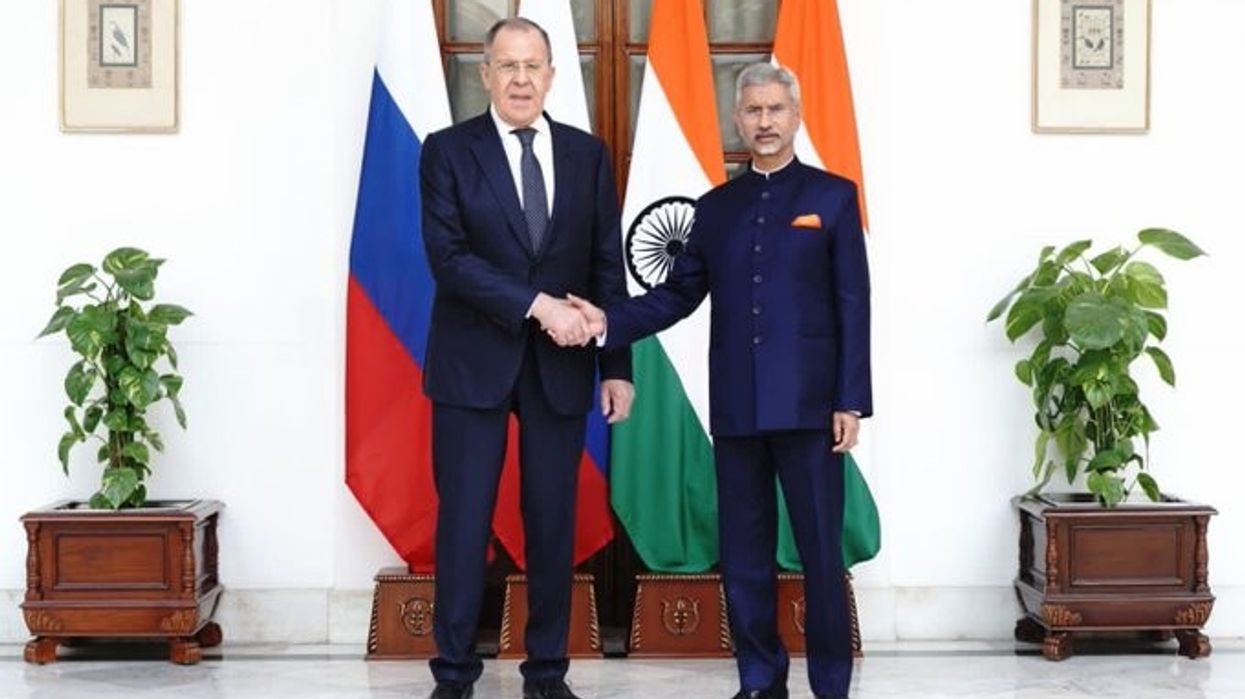External Affairs Minister S Jaishankar on Wednesday (01) held wide-ranging discussions with his Russian counterpart Sergey Lavrov on bilateral cooperation, the Ukraine conflict and issues relating to G-20.
The Russian Foreign Minister landed in the national capital on Tuesday night to attend a two-day meeting of the G20 foreign ministers that is taking place amid Russia's escalating confrontation with the Western powers over the Ukraine conflict.
"A wide-ranging discussion with FM Sergey Lavrov of Russia on #G20FMM sidelines. Exchanged views on our bilateral cooperation and G20 issues," Jaishankar tweeted.
It is learnt that the Ukraine conflict figured in the talks. Coinciding with Lavrov's visit to India, the Russian foreign ministry said Moscow considers the G20 as a prestigious forum for the world's leading economies where "balanced" and "consensus" decisions should be made in the interests of all.
"We support India's G20 presidency in its commitment to promote a unifying agenda that will restore confidence in multilateral diplomacy and prevent the fragmentation of the global economy," it said in a statement issued late Tuesday night.
The Russian foreign ministry said Moscow shares the relevance of India's stated priorities such as ensuring inclusive and sustainable economic growth, accelerating progress towards the achievement of sustainable development goals, reforming multilateral institutions and digital modernisation.
"We support India's effort to improve working mechanisms and create specialised processes to respond to natural disasters and launch start-ups. We are ready to make a significant contribution to making progress in all these areas," it said.
"We aim to work together with our Indian colleagues to achieve the desired result, showing the greatest possible flexibility. At the same time, we will firmly defend Russia's fundamental interests and an international world order based on the central role of the UN and international law," the Russian foreign ministry said.
It said Russia will strongly promote "recognition of the new global realities" that assert a multipolar system of relations between states. "During the regular foreign ministers' meeting we intend to firmly and openly talk about the reasons and instigators of the current serious problems in world politics and the global economy," it said.
"We will focus on the attempts by the West to take revenge for the inevitable disappearance of the levers of dominance from its hands. We will also concentrate on its striving to continue receiving unilateral rent, in part, through unequal trade and violent interference in the affairs of sovereign states," it said.
- PTI




